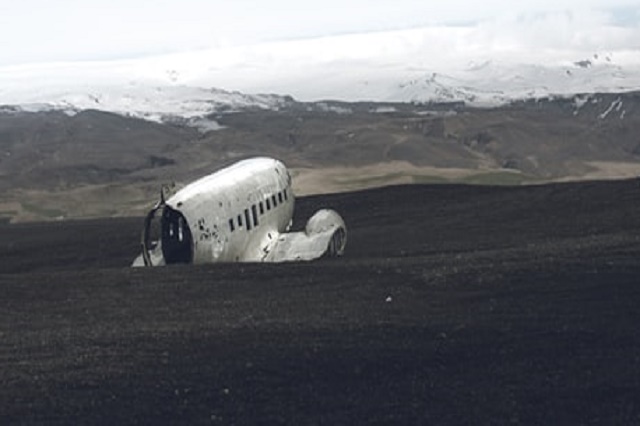Goma – Eight UN peacekeepers six Pakistanis, a Russian and a Serb were killed on Tuesday when a Puma helicopter crashed in the troubled eastern Democratic Republic of Congo, UN and Pakistani officials said.
“While undertaking a reconnaissance mission in Congo, 1 PUMA Helicopter crashed. Exact cause of crash is yet to be ascertained,” the Pakistani military’s media wing said.
It added that six Pakistani troops were among those killed.
ALSO READ | Group of DRC refugees leaves South Africa voluntarily
A spokesperson for UN chief Antonio Guterres in New York confirmed the crash and gave the nationality of all eight victims.
Pakistan’s Prime Minister Imran Khan expressed his “deep sense of shock and grief”, his office said, paying tribute to the global peace effort by the country’s armed forces.
Congolese military authorities in North Kivu said M23 rebels had “shot down” the aircraft. But the group denied this, instead claiming the Congolese military was responsible for the crash.
The UN Stabilization Mission in the DR Congo (MONUSCO) said earlier in a tweet that it had “lost contact” with one of its helicopters which was on a reconnaissance mission in the Rutshuru region of North Kivu province where Congolese forces have been battling M23 rebels.
Decades of distrust
The Democratic Republic of Congo army has explicitly accused Rwanda of supporting an armed rebellion in the east of the vast country, charges Kigali denied on Tuesday.
After months of suspicion and decades of mistrust between DR Congo and its neighbour Rwanda, a spokesperson for the North Kivu governor on Monday issued a statement saying the M23 “backed by the Rwanda Defence Force, (RDF) carried out incursions and attacked positions” of the army the previous night.
The attacks took place at Tchanzu and Runyoni, in the Rutshuru area, General Sylvain Ekenge said.
ALSO READ | In DRC civil servants work until the end of their lives
To support his accusations, he added two Rwandan soldiers had been arrested during Monday’s attacks, identifying a warrant officer and a private.
The two alleged soldiers, dressed in civilian clothes, were standing next to him in footage shown on Congolese television.
DRC Communications Minister and government spokesperson Patrick Muyaya said on Monday night that following the army accusations, the foreign ministry would “invite Rwanda’s ambassador so that he comes to give us some explanations”.
The ambassador, Vincent Karega, denied the accusation of Rwandan collusion, saying in a tweet that “Rwanda does not support the M23 politically or militarily”.
The governor of Rwanda’s western province, Francois Habitegeko, also hit back on Twitter.
“We would like to categorically refute the baseless accusations and state that RDF is not by any means involved in the belligerent activities,” in DR Congo, he wrote.
He added that the two men displayed on Congolese television had been arrested “more than a month ago” and were not the soldiers named.
M23 spokesperson Willy Ngoma, in a video message, said the movement was strictly Congolese and did not receive “any assistance… from any neighbouring country”.
‘Tired of war’
Sources in civil society groups in the region said fighting resumed on Tuesday morning between government troops and the rebels from M23, also known as the Congolese Revolutionary Army.
ALSO READ | Traumatised’: DRC train crash survivors recount horror
M23 emerged from an ethnic Tutsi Congolese rebellion that Rwanda and Uganda had supported in the border province plagued by myriad armed groups over the last 25 years.
M23 was defeated by the army in 2013 but has resurfaced since November and been accused of staging several raids on military strongholds around Rutshuru.
The movement claimed the authorities in the capital Kinshasa have failed to respect commitments undertaken to ease the demobilisation and integration of its combatants.
Goma resident Kennedy Bahati, 32, said he and everyone in the region was scared and “tired of war”.
Since Rwandan Hutus accused of slaughtering Tutsis during the 1994 genocide flooded into the DRC, Kigali has been regularly accused of incursions into Congolese territory and of backing armed rebels in the east.
Ties improved with the 2019 arrival in power of President Felix Tshisekedi, who has met his Rwandan counterpart Paul Kagame several times.
However, M23’s re-emergence has renewed tensions. The group put out a statement at the weekend saying army operations “against its combatants probably show the definitive choice of the Republic’s government to fight it out with M23”.
ALSO READ | DRC court sentences 51 to death in murder of UN experts
The provinces of North Kivu and Ituri were placed under a state of siege in May with local authorities replaced by army officers and police but violence has continued unabated.
Follow African Insider on Facebook, Twitter, Instagram
Source: AFP
Picture: Unsplash


